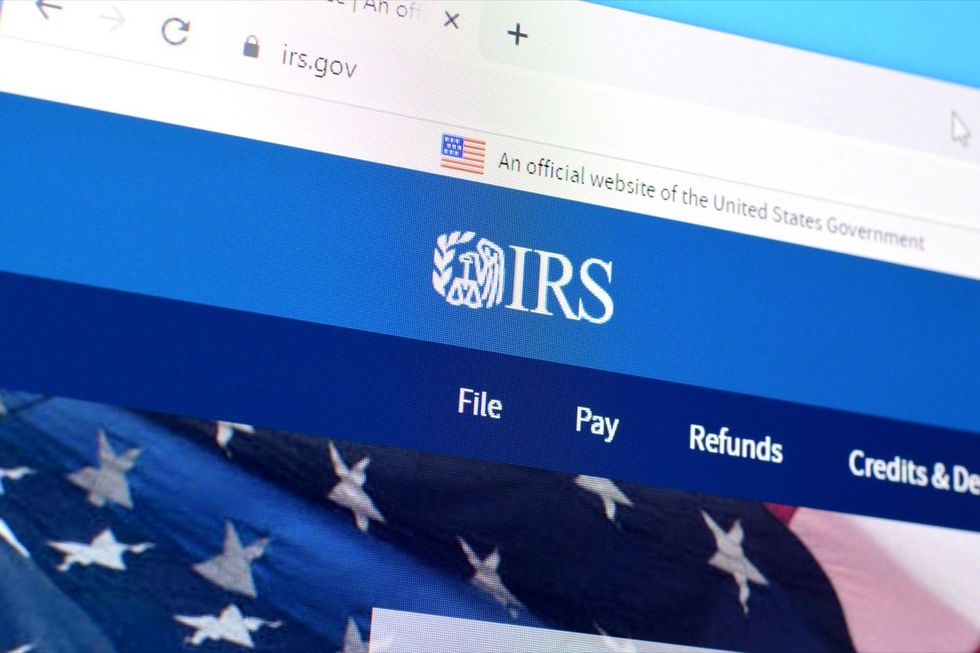Most taxpayers were required to file their tax returns by April 18 this year to avoid any penalty fees. This deadline may have caused you a fair amount of stress, especially if you knew you owed money to the Internal Revenue Service (IRS). But some lucky filers actually look forward to the tax season, because they end up getting refunds—and sometimes quite substantial ones. As it turns out, you may be due for another payday in that case, because the agency owes certain taxpayers even more money. Read on to find out if you could have a bigger payout coming your way.
READ THIS NEXT: The IRS Warns You'll Have to Return Stimulus Money If You Did This.
The IRS still has not processed millions of tax returns.
 Mehaniq / Shutterstock
Mehaniq / ShutterstockIf you've already submitted your tax return but are still waiting for it to be processed, you're not alone. As of May 6, the IRS still had more than 9.8 million unprocessed individual tax returns in its system, which includes returns received before this year and new 2021 tax returns filed this year. Out of these unprocessed returns, "2.6 million returns require error correction or other special handling, and 7.2 million are paper returns waiting to be reviewed and processed," according to the tax agency.
"This work does not typically require us to correspond with taxpayers but does require special handling by an IRS employee so, in these instances, it is taking the IRS more than 21 days to issue any related refund and in some cases this work could take 90 to 120 days," the IRS said.
The agency might owe you more money if you haven't received your refund yet.
 iStock
iStockWhile the IRS says that it issues most refunds within 21 days, the agency actually has at least 45 days to process your return and issue your refund before there are consequences. If the IRS misses this deadline, it is legally required to start paying interest on your refund.
So if you filed your 2021 tax return by the April 18 deadline this year and do not receive your refund by June 2, you could be owed extra money from the agency in the form of interest. And it's not that uncommon. The IRS had to pay taxpayers an extra $3.3 billion in interest last year due to late refunds, according to an analysis from the Government Accountability Office (GAO).
It's not likely to be a large amount for most taxpayers.
 iStock
iStockUnfortunately, the extra money might not alleviate the frustration that comes with waiting for a late refund. Bill Smith, the national director of tax technical services at CBIZ Inc. and a former tax attorney at the U.S. Department of Justice, told CBS MoneyWatch that most taxpayers likely don't even realize the IRS pays interest on late refunds. "I would add they probably don't care that much about it because in general, it's not going to be a big number. The sooner they get their money from the government, the happier they are," Smith told the new outlet.
According to Marca, the interest is based on the federal short-term rate, which is 4 percent, as of April 2022. So if someone is waiting longer than 45 days for a tax refund worth $3,019—which is what the IRS says is the average refund this year—they could receive an extra $120.76 in interest.
Or it could be even larger: On May 20, the IRS announced that it will pay 5 percent interest on delayed tax refunds starting July 1—although this still might not make much of an overall difference for taxpayers. "People would rather have their refund on time. If you've got $3,000 or $4,000 coming, an extra couple hundred bucks is not going to do much," Rob Burnette, a financial adviser and CEO of Outlook Financial Center in Troy, Ohio, told CBS.
There are various problems that could be delaying your refund.
 iStock
iStockThere are a number of reasons why the IRS might be taking longer to process your return, and the agency has already warned that processing delays caused by the COVID pandemic have prevented the agency from getting everyone's refund issued within 21 days. According to CNET, some of the common reasons why your refund might be delayed could be because your tax return has errors or is incomplete, your banking information is wrong, you filed by paper, or you didn't properly claim your stimulus or child tax credits.
If you still haven't received your refund and are not sure why it's been delayed, you can check the status of your refund by using the Where's My Refund? tool on the IRS website. "The IRS cautions taxpayers not to rely on receiving a refund by a certain date, especially when making major purchases or paying bills," the agency says.
READ THIS NEXT: The No. 1 Reason You Could Get Audited by the IRS, Experts Warn.





